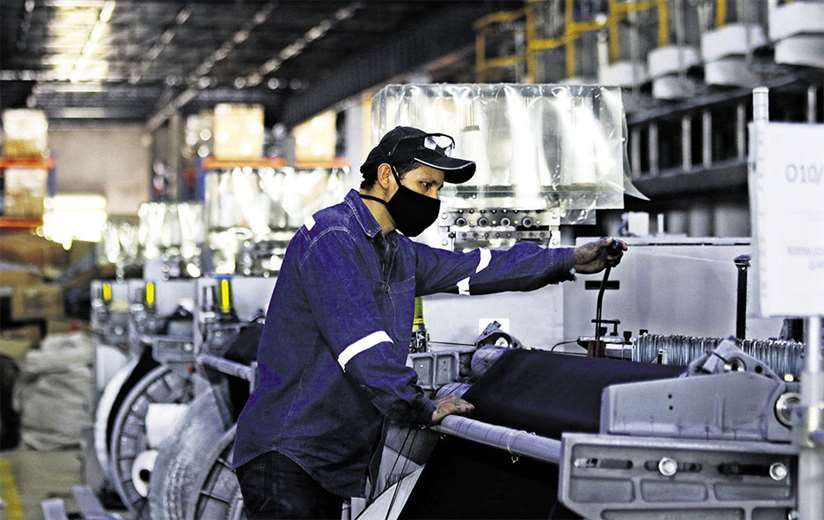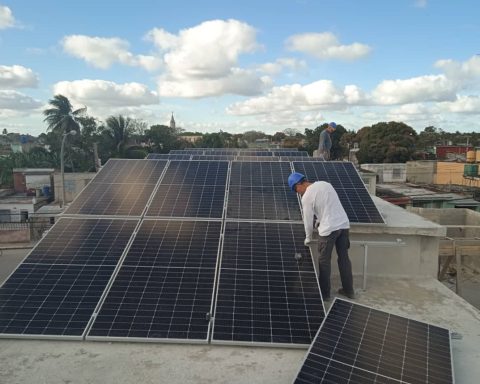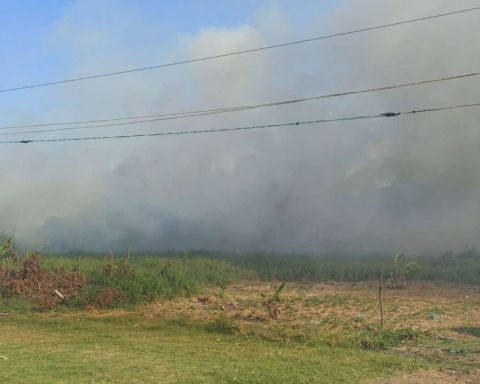Concern is what the industrial sector feels in the face of the demand for wage increases raised by the Bolivian Workers’ Central (COB). This Thursday, through a press release, the National Chamber of Industry (CNI) said that the demand it will plunge the national productive apparatus into a greater and critical recession and will generate “greater liquidity and insolvency risks” in companies.
In March, the COB proposed a salary increase of 10% to the national minimum wage and 7% to the basic salary. But the parent entity of the industrialists asked to freeze the salary adjustment to protect “the economic reactivation, national production and the generation of formal employment.”
Next, we present the main arguments put forward by the industrialists to freeze the salary increase
no recovery
Among the main foundations exposed by the CNI is the fact that “in 2021 a GDP recovery rate of 6.11% was experienced, when in 2020 the economy contracted by -8.83%that is, the economy and companies in the country have not yet reached the level of economic activity recorded in 2019 and are in recession.”
“The salary increase will generate a negative effect of slowing down and postponement of the reactivation of the economy, placing companies in a delicate situation of greater illiquidity and risk of insolvency”, indicates the CNI.
low inflation
On the other hand, the industrial sector said that in 2021 an inflation rate of 0.9% was registered and in 2020 of 0.67%, which means that the purchasing power of wages remained stable in the last two years.
High salary
Another of the sector’s arguments is that the Bolivian National Minimum Wage is the fifth highest among 10 South American countries. In this sense, the industrialists believe that “a salary increase will increase production costs in Bolivia, generating a greater loss of productivity and competitiveness of national production with respect to neighboring countries, promoting imports”.
Investment disincentive
For businessmen, a salary increase will increase labor costs, further discourage investment and national production and, on the other hand, will encourage smuggling and informality. “The National Government promotes the substitution of imports and the salary increase goes against this state policy. The wage increase drives smuggling and deindustrializes Bolivia.”
It will increase informality
Finally, the salary increase, according to the business sector, will only increase informal and precarious employment that does not contribute with taxes to the State and does not generate employment with short-term (health) and long-term (retirement) social security.
“Only 14% of the employed population in the country receives the salary increase agreed by the public sector and the COB. For each point of salary increase, around 10,000 jobs are lost in Bolivia”, the industrialists pointed out.
Concern is what the industrial sector feels in the face of the demand for wage increases raised by the Bolivian Workers’ Central (COB). This Thursday, through a press release, the National Chamber of Industry (CNI) said that the demand it will plunge the national productive apparatus into a greater and critical recession and will generate “greater liquidity and insolvency risks” in companies.
In March, the COB proposed a salary increase of 10% to the national minimum wage and 7% to the basic salary. But the parent entity of the industrialists asked to freeze the salary adjustment to protect “the economic reactivation, national production and the generation of formal employment.”
Next, we present the main arguments put forward by the industrialists to freeze the salary increase
no recovery
Among the main foundations exposed by the CNI is the fact that “in 2021 a GDP recovery rate of 6.11% was experienced, when in 2020 the economy contracted by -8.83%that is, the economy and companies in the country have not yet reached the level of economic activity recorded in 2019 and are in recession.”
“The salary increase will generate a negative effect of slowing down and postponement of the reactivation of the economy, placing companies in a delicate situation of greater illiquidity and risk of insolvency”, indicates the CNI.
low inflation
On the other hand, the industrial sector said that in 2021 an inflation rate of 0.9% was registered and in 2020 of 0.67%, which means that the purchasing power of wages remained stable in the last two years.
High salary
Another of the sector’s arguments is that the Bolivian National Minimum Wage is the fifth highest among 10 South American countries. In this sense, the industrialists believe that “a salary increase will increase production costs in Bolivia, generating a greater loss of productivity and competitiveness of national production with respect to neighboring countries, promoting imports”.
Investment disincentive
For businessmen, a salary increase will increase labor costs, further discourage investment and national production and, on the other hand, will encourage smuggling and informality. “The National Government promotes the substitution of imports and the salary increase goes against this state policy. The wage increase drives smuggling and deindustrializes Bolivia.”
It will increase informality
Finally, the salary increase, according to the business sector, will only increase informal and precarious employment that does not contribute with taxes to the State and does not generate employment with short-term (health) and long-term (retirement) social security.
“Only 14% of the employed population in the country receives the salary increase agreed by the public sector and the COB. For each point of salary increase, around 10,000 jobs are lost in Bolivia”, the industrialists pointed out.
;


















